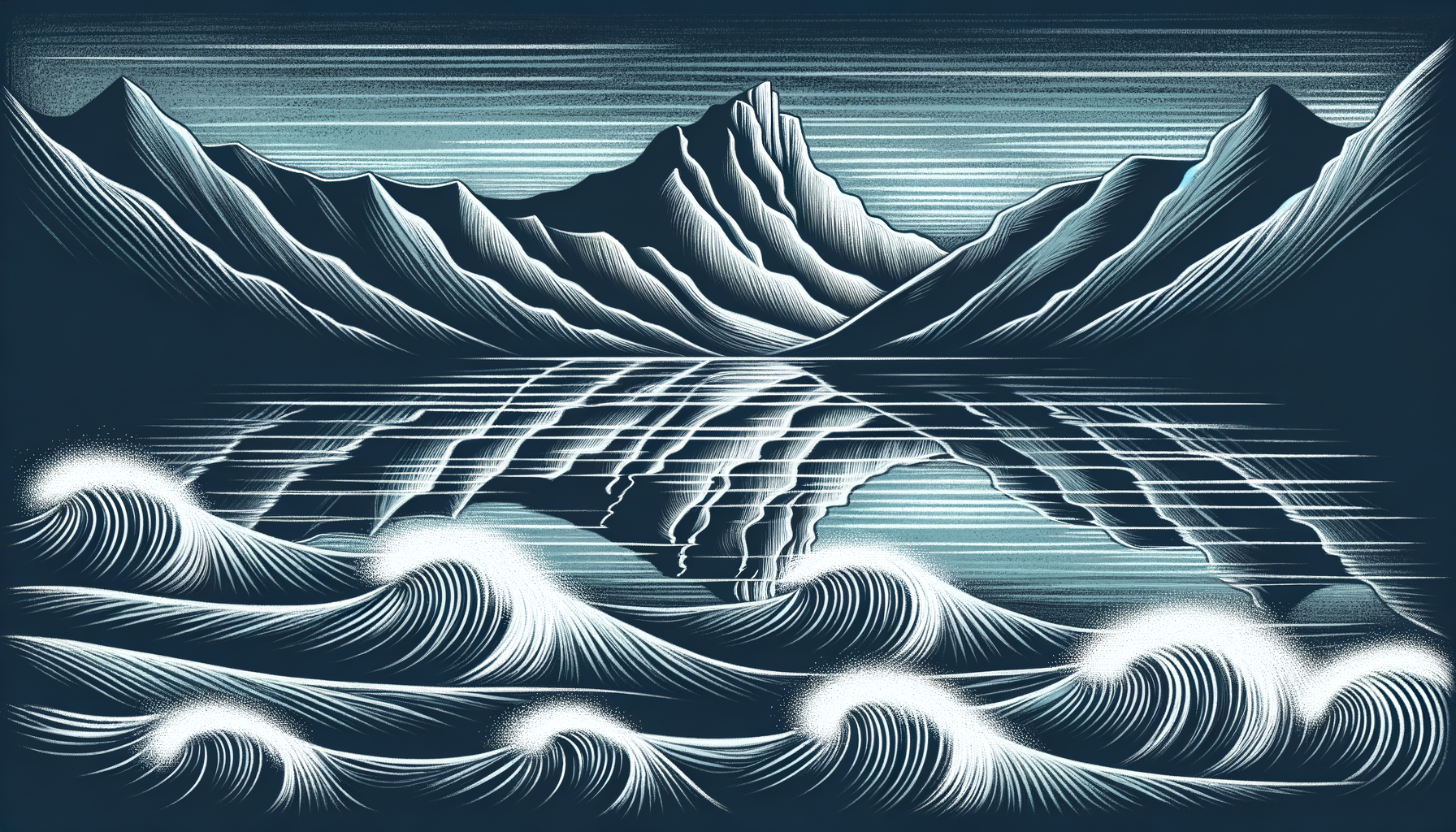The Day I Saw My Reflection in a Life Jacket
In the summer of my twenty-sixth year, I pulled off what could only be described as a quarter-life crisis bingo. I was back in Nantucket, my budding career as a maritime historian in Boston marooned somewhere between “uninspired” and “actively floundering.” It wasn't that I didn’t love history—oh, I loved it like the way you love a faded polaroid of your childhood dog: with layers of nostalgia but a fuzzy connection to reality. My days were spent with dusty archives, clunky microfilm machines, and Facebook ads for grad programs in urban planning taunting me as if to say, “Still searching, aren’t we?”
You could’ve called me lost, but calling myself a shipwreck felt far more on-brand. Then one day, while lugging a half-deflated raft toward the beach for my cousin’s kids, I accidentally discovered my purpose—or at least stumbled upon something that made my life click a little deeper into place. Spoiler: it involved a kayak, a stranger, and some of the worst flirting in modern nautical history.
A Morning That Began With Complaining
The Nantucket shoreline that morning was the rarest shade of New England perfection: vibrant sunshine tempered by a whispering breeze that kept the mosquitoes from staging their usual coup. Naturally, I was too busy grumbling about sand in my shoes to notice. My cousin had volunteered me to help her kids try out a kayak they’d rented from someone with a name like “Skip” or “Chip,” one of those men who exude the glow of perpetual sunscreen. I wasn’t thrilled about playing lifeguard, but I couldn’t exactly say no, seeing as I had no real plans beyond maybe tackling a “To Be Read” pile that was older than some of those kids.
The kayak was dinky, bright orange, and designed for calm waters, which explained why it bucked against the waves like a caffeinated toddler in choppy Nantucket Sound. Every five minutes, a kid would flip it. Every six minutes, they’d holler my name for help, completely ignoring the fact that I, too, was barely clinging to a sense of equilibrium. By the third round of hoisting the kayak upright, I half-jokingly wondered if I could barter with Poseidon for a quiet return to dry land. Little did I know, the waters had other plans.
When a Stranger Paddles into Your Scene
It was your quintessential rom-com encounter, except replace a meet-cute coffee shop with the high seas and charm with sheer awkwardness. I was standing knee-deep in saltwater, trying to wrestle the kayak tether away from a stubborn bit of kelp, when he paddled into view.
“Need an extra hand?” he called. His voice had that loose, affable tone of someone who clearly knew his way around an oar—and, more alarmingly, probably noticed my mini-meltdown. He’s the kind of guy you’d expect to see in an L.L. Bean catalog: flannel rolled up to the elbows, distant hint of a lumberjack aesthetic without commitment to the lifestyle.
“No thanks, I’ve got it,” I said, delivering my rebuttal with all the authority of someone trying to untangle a sea knot while dripping with indignity. Naturally, my foot slipped, and I made one last doomed grab for the kayak before going full Titanic.
He lunged just in time to stop the kayak from capsizing, grinning as though he’d saved a family heirloom and not just a rental vessel. “Guess I’m your first mate now,” he said, without shame or hesitation. I rolled my eyes, but truthfully, I had bigger concerns than his flirting—namely the fact that my life jacket had somehow flipped up over my head, trapping me in a fluorescent chastity belt of nylon.
For the next hour, as my cousin’s kids occupied themselves with newfound delight in flipping deliberately, the either-best-or-worst pick-up artist in Nantucket struck up a conversation. It turns out he wasn’t just visiting—he’d actually grown up on a nearby island and was crashing with friends while he scouted spots for something ambiguous and vaguely brooding like “creative inspiration.” By all rights, our encounter should’ve blended into the anthology of cringe-worthy misadventures that defined my twenties, except for one revelation that sent ripples through my not-so-stable sense of self.
The Question I Didn’t Know I Needed
“So,” Paul (because yes, his name turned out to be as unremarkable as my coordination) asked after a lull in conversation, “What’s your favorite part of being out here? I mean, besides the kayak wrestling match.”
It wasn’t a big question, nothing profound or philosophical. But the simple phrasing somehow broke through my cynicism. “Favorite part?” I said, more as an echo than an answer.
And that’s when I stopped to really look around: the ocean stretched endlessly, its surface marveling in how to be chaos and calm all at once. The kids shrieked and splashed without a care, the kind of joy that only comes from total trust in the water—and the adults standing by. Even Paul, for all his undeniable corniness, had settled into a quiet rhythm with his paddling, like Nantucket’s tide was his second heartbeat.
It hit me like a rogue wave. What I loved—what I’d always loved, really—wasn’t just the history of the sea but the perpetual present of it. The way it could smooth out all the distractions of life, reminding people to be wholly here. The way water brought people together to share moments of ridiculousness and joy, even if it left you drenched and tangled in a metaphorical life jacket.
Somewhere in that epiphany, it occurred to me that history wasn’t just an intellectual pursuit I’d shoved into a career path. It wasn’t about maps or drying out letters from centuries past; it was about connection—the ways people anchor themselves to places, each other, and the forces larger than any of us.
Anchoring Into Action
If this were a movie, I’d probably leave the beach with Paul’s number and an entire rom-com montage cued up behind me. Spoiler: that’s not what happened. We parted ways good-naturedly, and unless he’s out there reading this and laughing, he’s long paddled on to whatever horizon called him next.
But what stayed with me were the lessons of that unscripted afternoon. I didn’t toss my historian’s hat overboard, but I did shift the way I viewed it. Instead of hyper-focusing on the stories stuck in stone or ink, I started asking how those stories shaped the emotional currents we swim through today. It infused not just my professional work but my personal relationships, too. People are drawn to love—whether romantic, platonic, or familial—for the same reason they’re drawn to the sea: to find belonging, to brave storms, to witness something breathtaking.
How You Can Find Purpose in the Small Things
While not all of us have the luxury of a serendipitous kayak moment (and frankly, good for you if your life avoids water-based slapstick), there are takeaways that any overthinker trying to make sense of their life can apply:
- Let go of the linear narrative. Purpose isn’t tied up in one shining moment where you unlock a singular mission. It often sidesteps directly into your path while you’re busy untying the metaphorical kelp in your life.
- Say yes to what you’d rather avoid. I could’ve stayed home that morning, but trust me: no epiphanies happen from scrolling Instagram in your sweatpants.
- Ask yourself better questions. It wasn’t “What’s your five-year plan?” that pulled me into self-discovery. It was noticing the details of why the present moment mattered. Sometimes, “What’s your favorite part?” is better than asking how everything fits into a bigger scheme.
When You Don’t Know Where You Belong, Start Here
There’s a reason humans have long turned to open water to feel their lives make sense. It reminds us of the impermanence of permanence, the smallness beneath the vastness, and the infinite potential to keep moving forward—even if we flip over a few boats on the way.
So, my dear reader, wherever you are—knee-deep in sand, navigating unfamiliar waters, or just wondering how to uncap your latest bottled potential—don’t worry about oversteering. Purpose will find you when you’re wobbling your way into the waves. And if you’re lucky, you might even run into someone as boldly awkward (and strangely helpful) as Paul along the way.




















